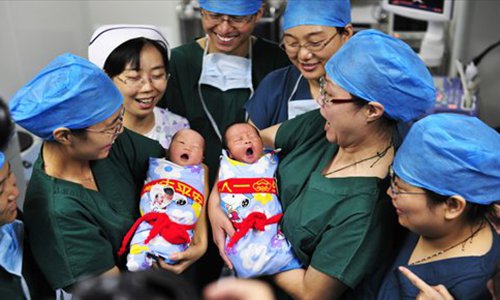Chinese widow granted IVF treatment right following husband’s sudden passing
Source:Global Times Published: 2020/6/23 19:53:42

Advances in preimplantation genetic screening in China, where the world's first test-tube baby was born using this technique in 2012, are giving infertile couples greater IVF possibilities closer to home. Photo: CFP
A Chinese court on Tuesday ordered a hospital in Wuxi, East China's Jiangsu Province, to fulfil the contract of in vitro fertilization (IVF) and embryo transfer medical services for a local widow whose husband accidentally died before the procedure was complete.
The widow, named Xiaoqin (pseudonym), received IVF treatment at the hospital in May of 2017 alongside her deceased husband, with the hospital successfully cultivating four embryos for the couple.
However, Xiaoqin was immediately hospitalized due to overstimulation upon the egg's retrieval.
The couple decided to postpone the embryo transfer procedure, and asked the hospital to preserve the embryos, signing an informal consent with the hospital to freeze, thaw, and transfer of embryos.
However, Xiaoqin's husband passed away in July of 2019. In order to carry on the family's bloodline, Xiaoqin decided to continue on with the embryo transfer procedure.
However, her request was rejected by the hospital who claimed that they were not able to conduct the procedure without her husband's consent according to China's assisted reproductive technology regulations. In fact, the informal agreement signed by her husband had become invalid since his passing.
What's more, the hospital could not conduct the procedure for the recently-widowed Xiaoqin, as she was now considered a single woman.
However, the Wuxi City Liangxi District People's Court ruled that the contract between the couple and hospital remains legitimate and valid. Although Xiaoqin's husband had passed away, the procedure is consistent with his wishes of having children before he died.
The judge thought that Xiaoqin, being a widow, differs from other single women; that is, her requirement of having children with assisted reproductive technology does not violate the principle of public welfare or China's laws and regulations on population and family planning.
RELATED ARTICLES:
Posted in: SOCIETY